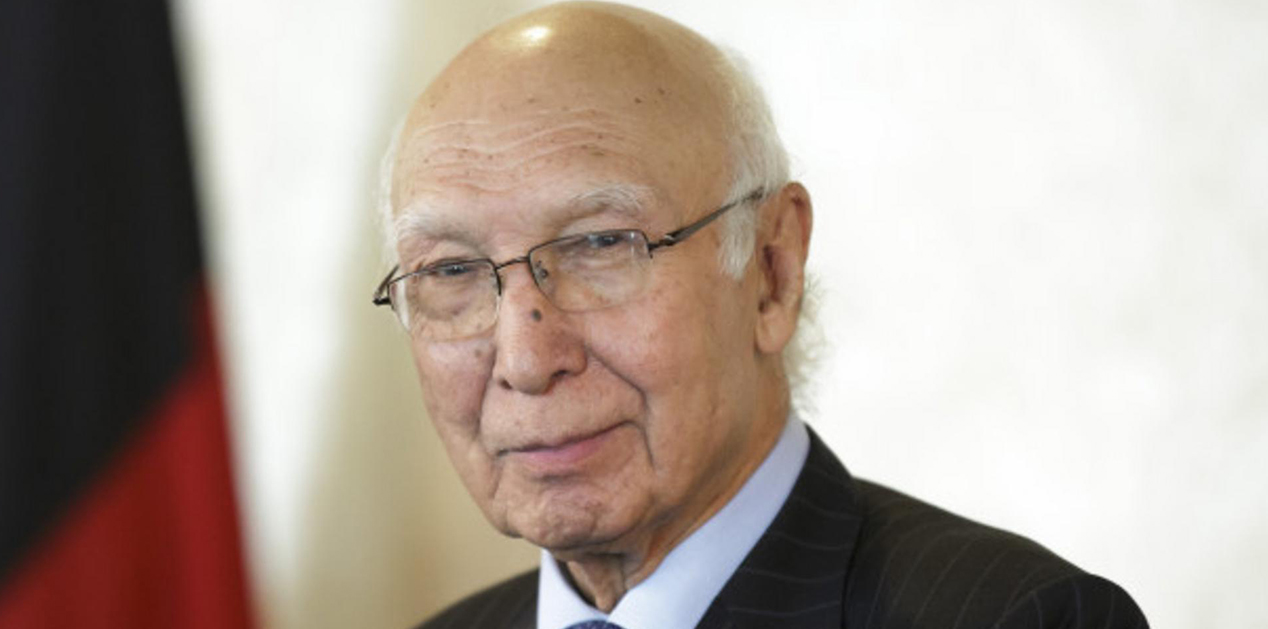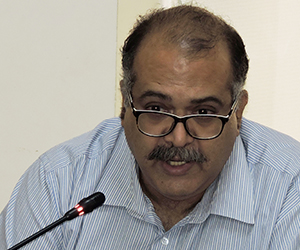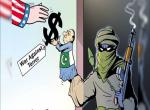In a recent interview Advisor to the Prime Minister of Pakistan on Foreign Affairs, Sartaj Aziz, levelled a preposterous charge that India was using terrorism as an excuse for not talking to Pakistan. He also claimed, rather disingenuously, that Pakistan had cooperated with India on the Pathankot terror attack and it was not justified to blame Pakistan for not doing enough. Clearly, if Sartaj Aziz’s interview is anything to go by, he is hinting that India needs to reconcile to holding talks with Pakistan even as terrorism continues to be spawned in India by both ‘state’ actors and ‘non-state’ actors who function as auxiliaries of ‘state’ actors. In other words, he is asserting Pakistan’s entitlement to continue using terrorism as an instrument of policy against India and expects India to, at best be blasé about terror attacks,and at worst, learn to live with these attacks. This is hardly a sustainable or tenable, much less an acceptable, proposition for India.
How much Pakistan has ‘cooperated’ with India in the Pathankot attack case is clear from another report in the same newspaper that carried SartajAziz’s interview. According to this report, a senior aide of Pakistan's Prime Minister – the official hasn’t been named but could presumably be either SartajAziz, or Tariq Fatemi or even the Pakistani NSA Lt. Gen. Nasser Janjua – said that the Pakistani Joint Investigation Team (JIT) that visited Pathankot wasn’t convinced that the attack was planned on Pakistani soil. The typical low cunning that Pakistanis bring to bear when confronted with terror attacks in India was on full display in this second report – ‘anyone can call Jaish-e-Mohammad numbers from India’, or that ‘the conversation [between one of the terrorists and his mother] does not prove he went from here [Pakistan]’ (perhaps he came from Mars but then how come a Martians mother was in Pakistan?).
Even as the Pakistan foreign secretary was parroting before a visiting delegation of US officials the standard line that ‘Pakistan was already pursuing its objective of eliminating all militants and terrorists from its soil in accordance with the National Action Plan’, the military establishment had brought out the ‘good’ militant and terrorist groups – Difa-e-Pakistan Council comprising among others the internationally designated terrorist organisation Lashkar-e-Taiba/Jamaatud Dawa and the Sunni extremist ‘banned’ outfit ASWJ – on the streets of Pakistan to demonstrate and protest against the US-India summit in Washington and the drone strike that killed the Pakistan-backed Afghan Taliban chief Mullah Akhtar Mansoor. The only purpose for unleashing the DPC was to blackmail the world with the jihadist threat if Pakistan wasn’t given what it wanted – parity with India.
While the rest of the world has presumably seen through this game, the Pakistanis obviously continue to believe that they can still squeeze something by at least waving the jihadist threat and occasionally using it as well. In the face of these developments, for Sartaj Aziz to take cover behind what he calls a ‘principled stand’ – Pakistanis quoting principles is quite akin to the Devil quoting the scripture – on the issue of designating the Jaish chief Masood Azhar as an international terrorist is part of the duplicitous conduct that is characteristic of Pakistan’s approach to terrorism. And when he holds a brief for Azhar by accusing India of ‘presuming’ his guilt, then it is quite apparent that the Pakistanis have absolutely no intention of bringing any of their favoured terrorists (also known as ‘strategic assets’) to justice. Aziz is also speaking with a forked tongue when he claims that Pakistani state handlers of the Jaish have been given a clean chit by the Indian NIA. All that the NIA chief said was that until now the Indian investigators have no clinching evidence that points to the involvement of the Pakistani agencies in planning the Pathankot attack. To misconstrue this as a clean chit is a deliberate and self-serving twisting of facts.
For Pakistani officials to accuse India of using terrorism as an excuse is a low blow even by Pakistan's already low standards. The fact of the matter is that it isn’t India that is using terrorism as an excuse to stall a dialogue as it is Pakistan which is seeking a license or a waiver to continue using terrorism as an instrument parallelly with talks. But it is ridiculous for anyone to think that talks and terrorism can proceed along parallel tracks, even less so when there is virtually no seriousness of purpose, let alone action, on part of Pakistan to curb the activities of terrorists who operate with impunity in that country. If indeed Pakistan is serious about a dialogue then it must know that terrorism is going to act as a spoiler in taking the talks process forward. Ergo, Pakistan should not only be seen to be doing something but should also be doing something on ground to exterminate the terrorists operating for its soil if it wants the ‘uninterrupted and uninterruptible’ dialogue. This is clearly not happening.
To an extent, some amount of the blame for Pakistan's duplicitous attitude as also its belief that talks and terrorism can coexist must also rest on India. One of the most glaring failures of India’s policy on Pakistan is that it hasn’t been able to disabuse either Pakistan or other countries of the violability its red lines, whether on the issue of terrorism or on the issue of Pakistani-instigated separatism. Although there is no illusion in India about Pakistan and its professed desire of having peaceful and normal relations with all its neighbours, including India, the problem is that every time India enters into an engagement with Pakistan, more so when India does this after relaxing if not entirely erasing its red-lines, the Pakistanis get emboldened to think they can continue merrily with business-as-usual. India will need to break this mould and send a clear and uncompromising message, not just to Pakistan but also other interlocutors in the international community, that while it is more than ready to engage Pakistan in talks, no dialogue can be held with a Pakistani gun pointed to India’s head, or for that matter to Pakistan's own head. If Pakistan is genuine about holding talks with India, it must deliver on its commitments to bring the planners and perpetrators of both the 26/11 attack as well as Pathankot attack to justice. And it must put the terrorist auxiliaries of the state out of business.
Published Date: 14th June 2016, Image Source: http://www.zeenews.india.com
(Disclaimer: The views and opinions expressed in this article are those of the author and do not necessarily reflect the official policy or position of the Vivekananda International Foundation)











Post new comment